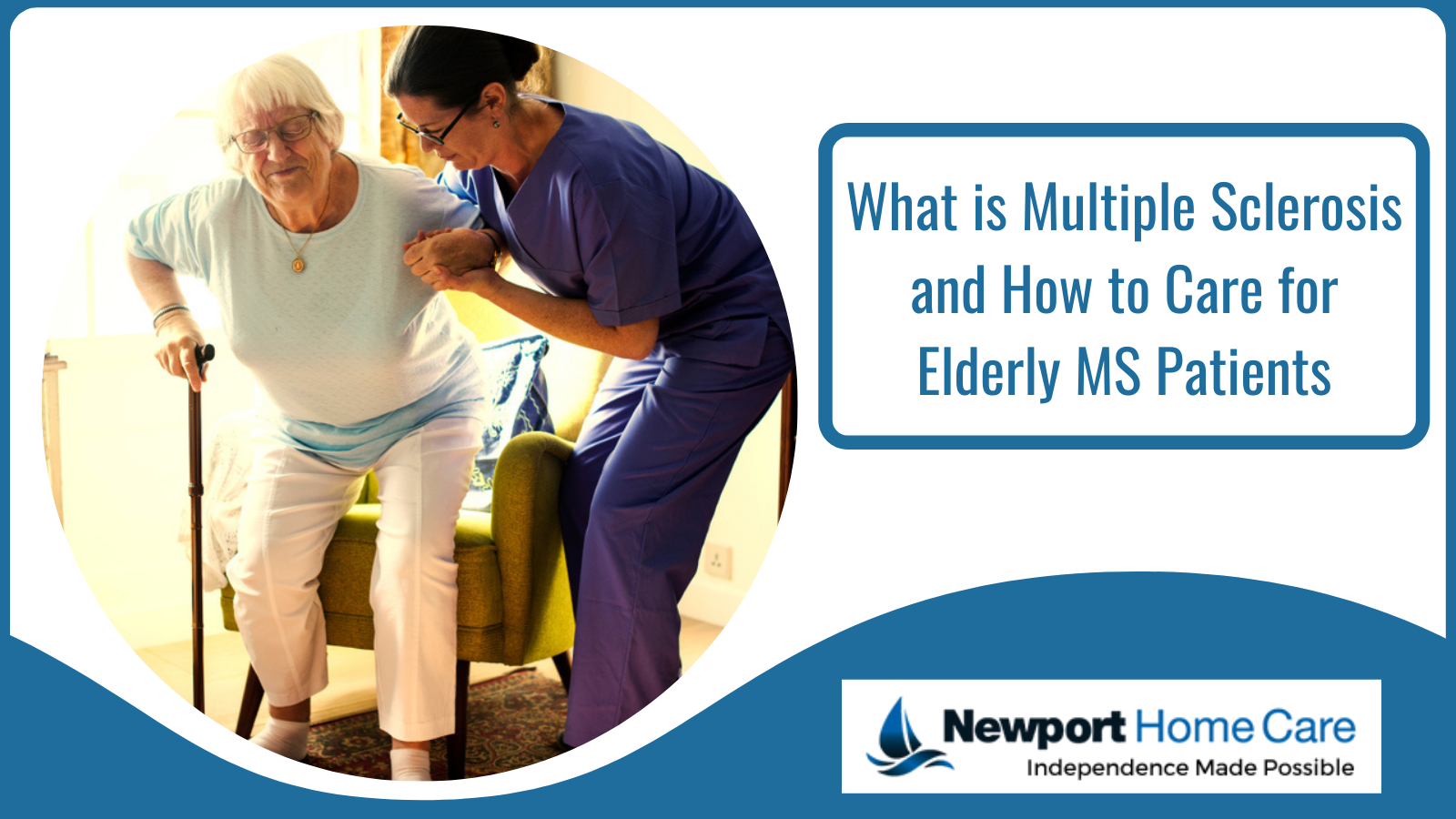Caring for someone with multiple sclerosis (MS) can be challenging as the condition can be unpredictable. This can make it hard to figure out what an individual with MS will need from one week to the other, including emotional and home support changes. Here’s a look into the basics of elderly care for patients with MS.
What is Multiple Sclerosis?
Multiple Sclerosis (MS) is an autoimmune disease where the immune system attacks the healthy tissue of the central nervous system, specifically the myelin sheath that surrounds and protects the nerve fibers by mistake. This leads to inflammation which can cause various symptoms throughout the body. Moreover, it is not easy to predict the progression of MS in any individual.
According to recent statistics, nearly 2.8 million people worldwide are affected by this disease. Though the causes for multiple sclerosis are unknown, it is believed that abnormalities with the immune system or infection by a slow-moving virus are related to the disease.
The immune system attacks the myelin sheath (myelin allows the nerves to conduct electrical signals efficiently and quickly) that surrounds and protects the nerve fibers. When this sheath sustains damage in multiple areas or simply disappears, it leaves a scar or sclerosis. According to medical experts, these areas are called lesions or plaques. They can affect:
- The brain stem
- White matter in certain sections of the brain
- The spinal cord
- Optic nerves
- Cerebellum which is responsible for coordinating balance and movement
As more lesions develop, the nerve fibers can become damaged, resulting in electrical impulses from the brain that do not flow smoothly to the target nerve. This means that the body of an MS patient cannot perform certain functions. However, many MS patients have little or no disability issues for many years after the diagnosis.
Signs and Symptoms of Multiple Sclerosis
- Slurring of words
- A sensation of itching and burning
- Impaired vision
- A sensation of numbness or tingling
- Abnormal reflexes (exaggerated or absent)
- Muscle stiffness or tightness
- Euphoria and depression
- Tremors
- Trouble with coordination (dropping things, tripping)
- Dysfunction of bladder and bowel movements (including incontinence)
- Weakness or fatigue
- Pain and spasms
Risk Factors
Although scientists don’t know what causes MS, the risk factors can include:
- Age: Diagnosis is received between the ages of 20 and 40 years.
- Sex: According to reports, men are less likely to be affected by most MS forms compared to women.
- Genetic factors: It may pass down in the genes. However, scientists believe that an environmental trigger is necessary for the development of MS.
- Smoking: According to recent reports, people who smoke constantly are more likely to develop MS.
- Infections: Even though research hasn’t shown any definite link, exposure to viruses like EBV (Epstein-Barr Virus) may increase the risk of developing MS.
How to Take Care of Elderly People with Multiple Sclerosis
- Although there is no cure for the disease, various treatment options are available that can help slow the progression of MS and relieve symptoms. Such options include several DMTs (Disease-Modifying Therapies), plasma exchange, physical and rehabilitation therapy, etc.
- Another way to provide care for elderly MS patients is to learn as much information as possible about the disease. Online resources can provide you with a lot of information. By becoming familiar with MS, you can understand what the person may or may not be feeling, even if you cannot see their symptoms. This can also help you to support them in better ways.
- Several care groups can provide you with essential information on any problem or condition that people with multiple sclerosis and their caregivers may experience. Furthermore, many emotional and physical issues associated with this disease can be difficult for the caregivers or family members caring for the older adult to resolve.
Many informative materials and services are available for caregivers through various national organizations to keep them informed. This information also helps to simplify the caregiving process to some extent.
- Caring for older people with MS can be tiresome and may affect your emotional well-being if you don’t take a break. Hence, professional counseling can go a long way in caring for yourself and others. You can ask the doctor to refer to a good therapist or other mental health professional.
- Despite your best intentions, you might not always be skilled or prepared adequately to care for a loved one with MS while simultaneously managing other responsibilities like work, caring for other family members, etc. Opting for in-home care, 24-hour in-home care, or respite care services providing caregivers trained to care for MS patients is also an excellent choice.
Multiple sclerosis is a serious health condition that affects the nervous system. However, since the progression of MS varies from person to person, it is hard to predict what will happen, making it particularly taxing to care for elderly MS patients. That’s why it is advisable to opt for professional home care services to ensure better care for such people.
See Also: The Causes of Functional Decline in the Elderly: Symptoms and Treatment
Looking for the best home care in Orange County, CA? At Newport Home Care, Newport Beach, CA, we offer 24-hour in-home care services for patients with MS. Our services can be customized as per your requirements, budget, and the patient’s health. Call us to schedule an appointment today.


